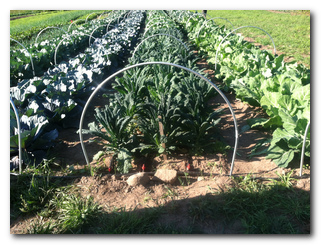Creating a legal framework for urban ag: Lessons from Flint
By Megan Masson-Minock, AICP In Flint, MI in 2007-2008, neighborhood groups wanting to start urban gardens bumped up against the city's zoning ordinance and a lack of public understanding about the nature and benefits of urban agriculture.The city’s zoning ordinance didn’t define land uses common in small-scale food production. Neither the state building code nor the city’s zoning ordinance recognized hoop houses. The city treated them as a commercial structure and required full site plan approval, a months-long process.After extensive community involvement, the city chose to define the activities as gardening vs. agriculture, to avoid invoking the Michigan Right to Farm Act. While it never formally established hoop houses as a use, people do still build them. The city did change the ordinance to allow trash pick up at urban farms and to allow them to tap into the municipal water system.If your governing body is considering urban gardening or agriculture, here are some things to think about:
In Flint, MI in 2007-2008, neighborhood groups wanting to start urban gardens bumped up against the city's zoning ordinance and a lack of public understanding about the nature and benefits of urban agriculture.The city’s zoning ordinance didn’t define land uses common in small-scale food production. Neither the state building code nor the city’s zoning ordinance recognized hoop houses. The city treated them as a commercial structure and required full site plan approval, a months-long process.After extensive community involvement, the city chose to define the activities as gardening vs. agriculture, to avoid invoking the Michigan Right to Farm Act. While it never formally established hoop houses as a use, people do still build them. The city did change the ordinance to allow trash pick up at urban farms and to allow them to tap into the municipal water system.If your governing body is considering urban gardening or agriculture, here are some things to think about:
- Are comprehensive policy changes necessary? The existing zoning ordinance may already have much of what you need.
- You should provide for public education and input.
- If you see that policy changes are necessary, use an inclusive, community-based approach to give validity and legitimacy to the final results. Engage adults, kids, advocates, funding agencies and nonprofits.
- Policy change takes time and will require even more information and education to succeed.
